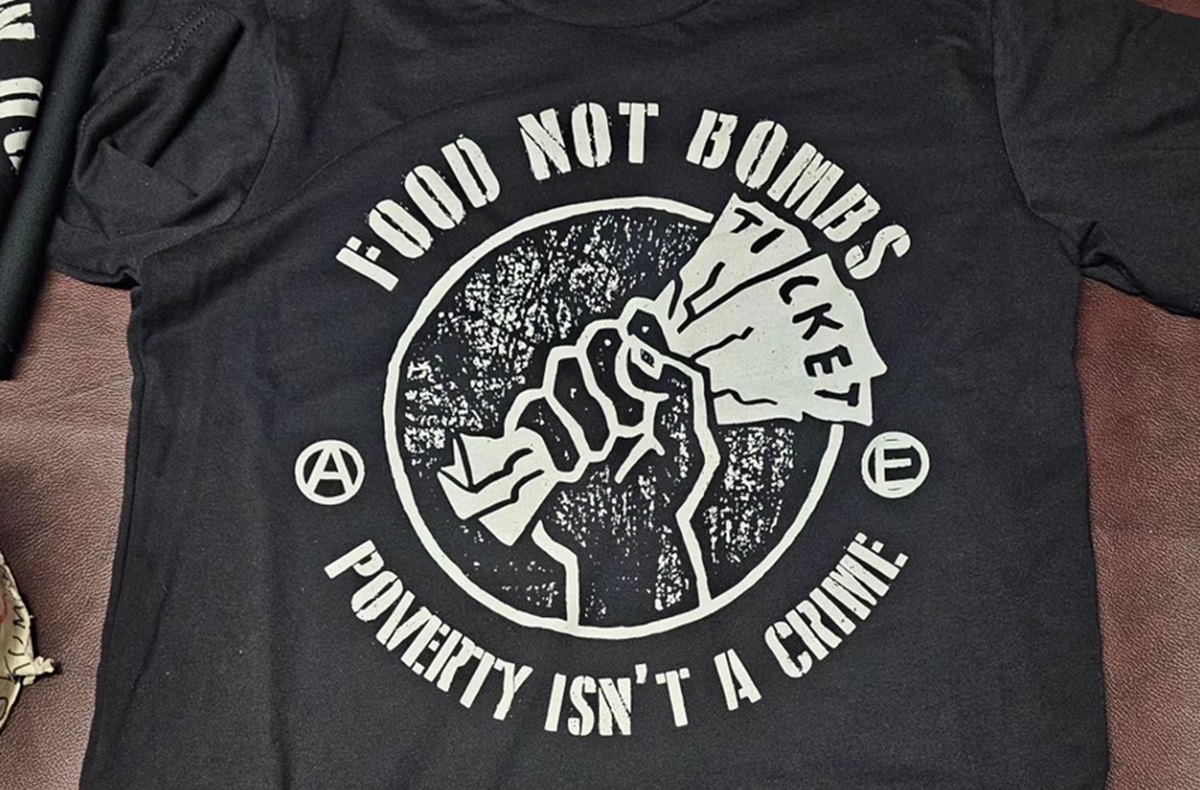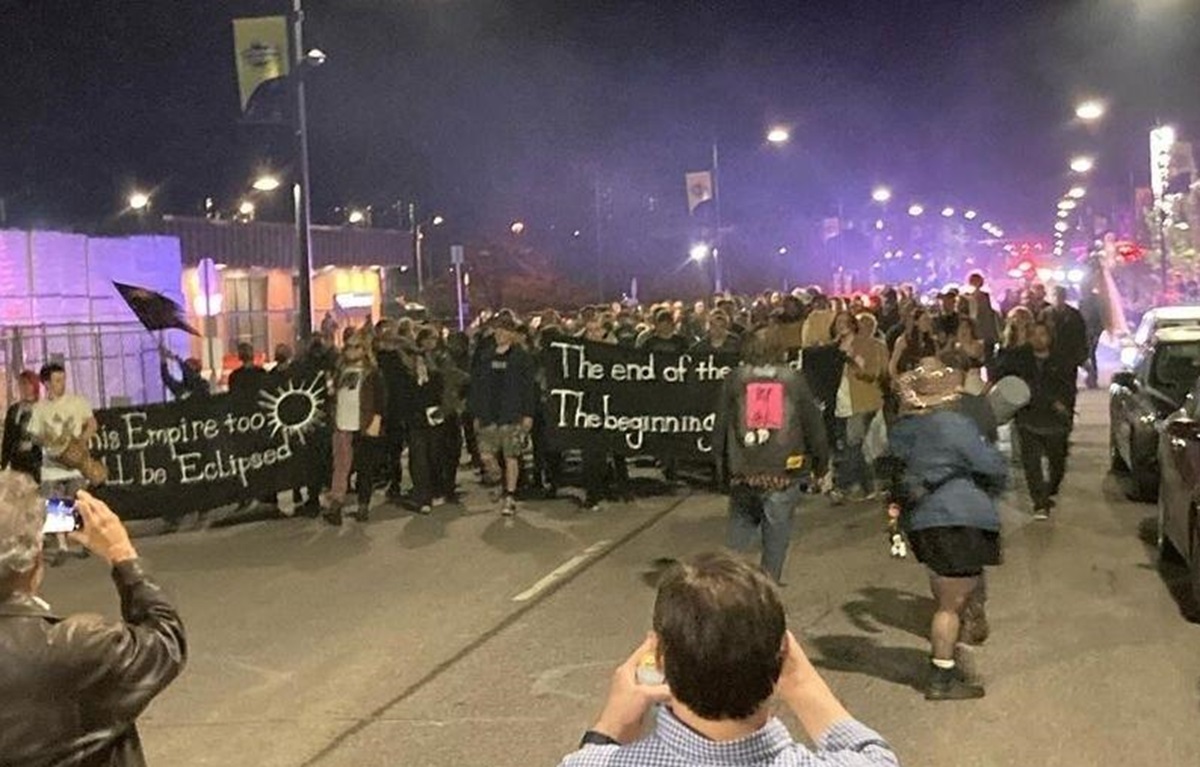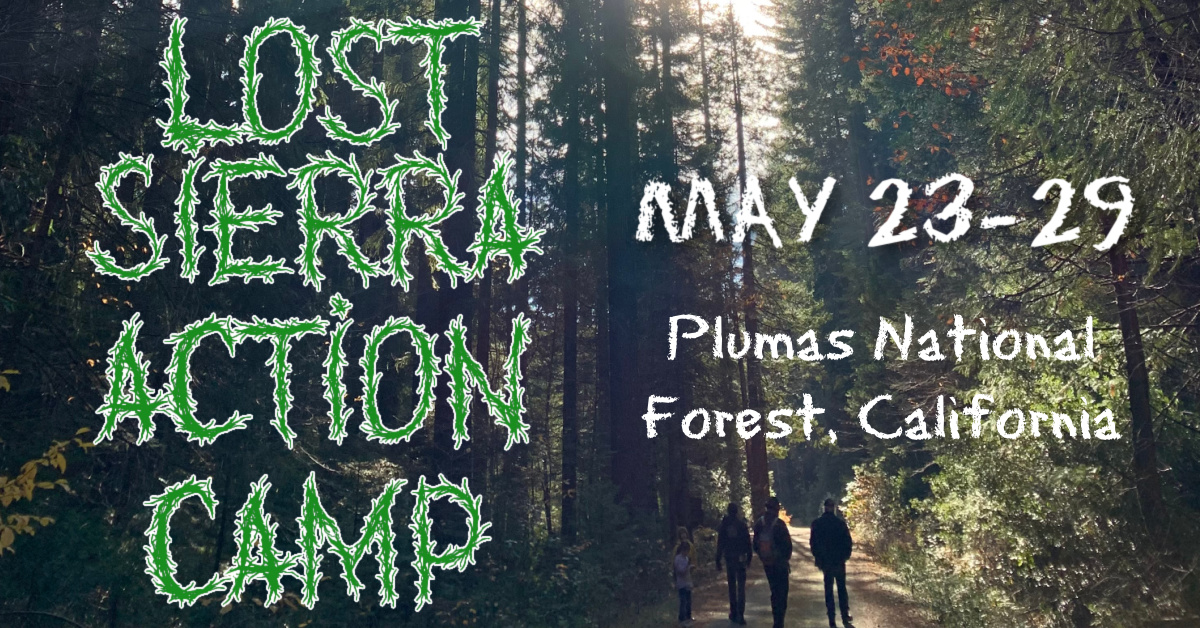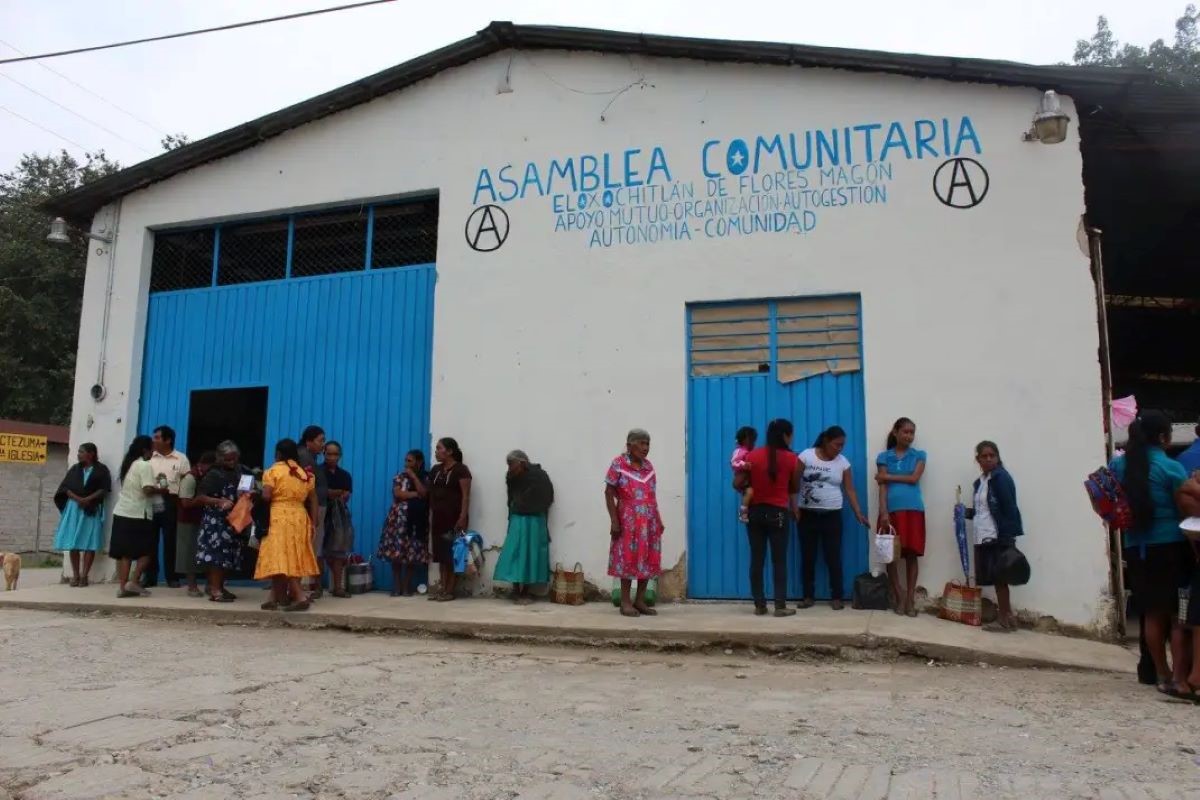Filed under: Announcement, Event, Police, Quebec, Repression, White Supremacy
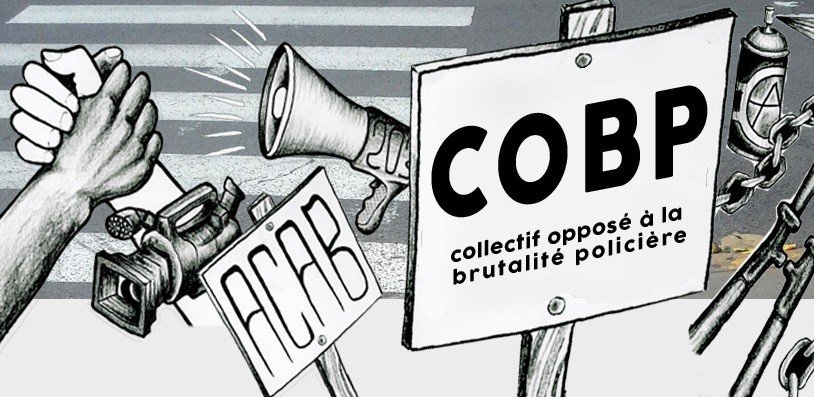
Call from the Committee Opposed to Police Brutality for an annual day of action. Originally posted to Collectif Opposé à la Brutalité Policière.
It is difficult to look at what is currently happening in the Yintah, the Wet’suwet’en territory, without reflecting on the role of the RCMP in the Canadian colony. What eventually became the RCMP was founded in 1873, partly in response to the Red River Métis Rebellion of 1869-1870. The primary objective of the RCMP, from its inception, was therefore to maintain imperial hegemony over the territory in order to open it up to capitalist exploitation.
The list of RCMP crimes is too long to be fully enumerated here. From the suppression of the Northwest Rebellion of 1885, to the banning of indigenous cultural practices, to the blockade of reserves and the free movement of native people, to the killing of sled dogs, and of course, the separation of children from their families and sending them to residential schools. We invite you to read the article “A Condensed History of Canada’s Colonial Cops” in The New Inquiry for a quick overview of the history of the RCMP as seen by indigenous people.
On March 15, join the 22nd demo against police brutality organized by the C.O.B.P! Food serving at 5, demo at 7:30, Parc LaFontaine, be there!#acab #ftp #march15 #policebrutality pic.twitter.com/z4v7aC5DMR
— submedia (@submedia) February 27, 2018
But is the grass greener in Quebec? Northern Quebec was under RCMP control until 1960. Colonial residential schools continued into the 1970s, and abuses continued during this period, with the full support of the SQ.
The SQ replaced the RCMP, and it can be said that it has fulfilled and continues to fulfill its role as representative of the colonial authority towards indigenous peoples. Whether in Listuguj (Restigouche) in 1981, in Kitiganik (Barriere Lake) in 1988, in Kanehsatà:ke and Kahnawá:ke in 1990, the response of the SQ to indigenous mobilizations has always been the same: To crush.
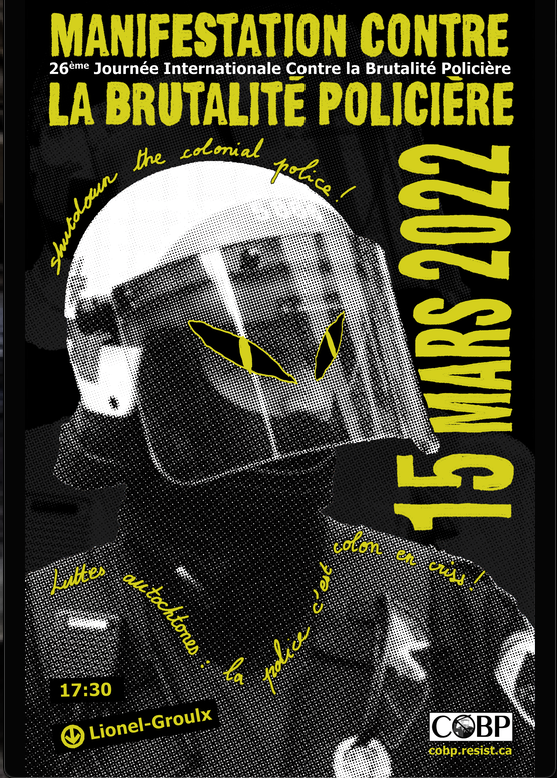
The final report of the Viens Commission, presented on September 30, 2019, illustrates the place that the police occupy in the Canadian colonial state. The report explicitly writes:
“These [indigenous] demonstrations are the product of the persistent disregard for the indigenous rights of indigenous peoples and the slowness of the courts to resolve land issues. […] Compared to other demonstrations, […] the police are used to intervene on the side of the government to crush or dismantle the demonstration, assuming that the rights claimed are wrong, before the court has ruled on the inherent validity of the claims.”
In the Le rapport final de la commission Viens, local police like the SPVM are similarly blamed: “In the literature, it is recounted that indigenous communities are both over-policed for minor offenses […] and under-policed, in the sense of under-protection in the face of the violence to which they are subjected.”
The role of the police, then, is not to protect anyone, but always to crush any effort to resist the exploitation of the territory. This desire for exploitation was manifested in 2012 with the Harper government’s omnibus Bill C-45. This bill changed many canadian laws, with the goal of making it easier for extractive companies to access the so-called canadian territory. Territory that is, of course, mainly populated by indigenous people. C-45 led to the birth of the “Idle No More” movement. The reaction of the Canadian government was to reinforce the Canadian police apparatus and the coordination between the colonial police services. The result is what we see now in Wet’suwet’en territory.
Québec: manifestation hier soir dans Montréal du Collectif opposé à la brutalité policière (COBP) pour conclure une semaine de rencontres sur les pratiques de la police. Affrontements avec la police, attaques de banques et de grandes enseignes, 3 arrestations. pic.twitter.com/lW1PHe5EJb
— Ter-Ter et Liberté (@TerTerEtLiberte) March 16, 2018
So, in 150 years, the role of the police in so-called Canada has not changed at all. Their role is still to open up the land for exploitation, which means driving out the people who live there, no matter the cost.
The police as a colonial force of exploitation is not unique to Canada, however. In Chile, for example, the army has been deployed to support police repression against the Mapuche people who are demanding the return of their ancestral territory from the hands of landowners and multinational logging companies. Colombia beats every year new records of assassinations of environmental activists and defenders of the land, many of them indigenous, all under the gaze of the police, a situation denounced by Amnesty International. In Mexico, it is the Zapatistas of the EZLN, essentially indigenous, who are being attacked by militias armed by the State. And in Brazil, it is the Supreme Court that gives the police the right to chase indigenous people off their land to give it to mining companies, a situation denounced by the United Nations.
Faced with police violence against indigenous peoples, whether here or elsewhere, we all come to the same conclusion: Fuck the colonial police!
We meet at 5:30PM on Tuesday, March 15th, at the Lionel-Groulx metro station!


